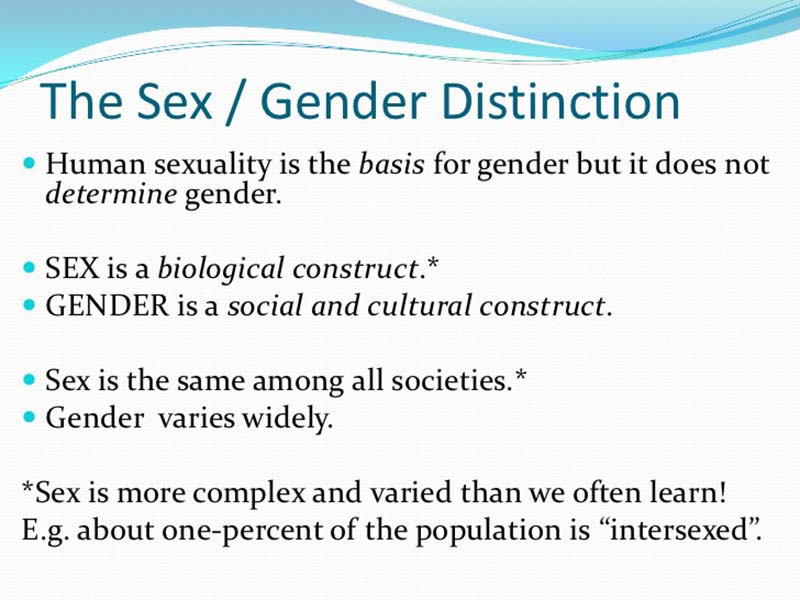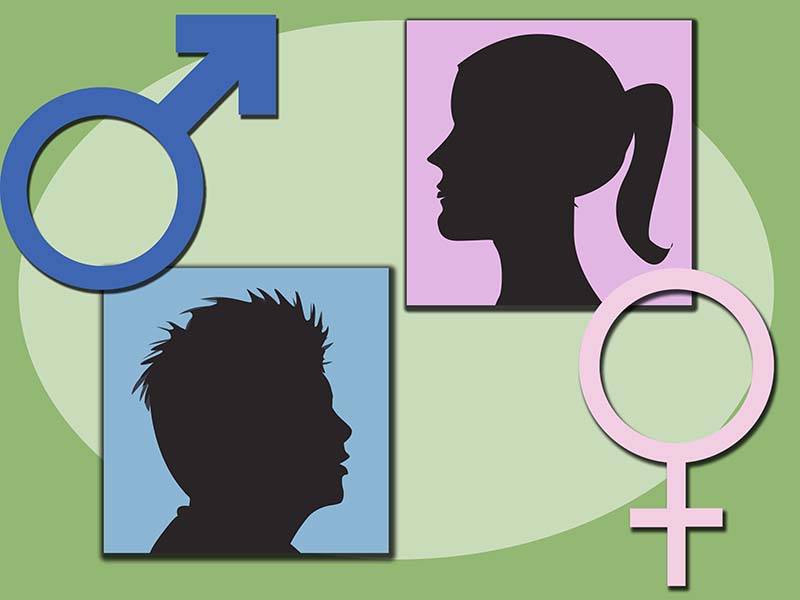Understanding Sex And Gender Distinctions
Let’s explore sex and gender distinctions together. I know there has been a lot of discussions recently in the media regarding: sex, gender, gender-fluid, transgender and it has left a lot of people feeling confused. It’s okay to be confused let’s break down this busy term.
What makes terminology so problematic is that sometimes the context or meaning changes. As culture shifts and changes, this changes our language, both the denotation and connotation meanings of words.
Basic Sex Ed
A quick biology lesson on human genetics reveals that both men and women have a total of 46 chromosomes, which include two sex chromosomes that determine biological sex. Men typically have one X and one Y chromosome, while women usually have two X chromosomes. This difference in sex chromosomes leads to significant variations in physical development, influencing primary and secondary sex characteristics, such as reproductive organs and body structure.
However, human genetics is not always so straightforward. Some individuals are born with atypical combinations of sex chromosomes, which can result in intersex traits. For example, people with Klinefelter syndrome have an extra X chromosome (XXY), while those with Turner syndrome have only one X chromosome (XO). These conditions can lead to a mix of male and female physical traits or result in unique biological characteristics. Intersex individuals may have physical traits from both sexes, challenging the binary understanding of biological sex.
These genetic variations highlight that biological sex is more complex than a simple male-female dichotomy. It’s important to recognize and respect the diversity in human genetics, understanding that biological differences do not fit neatly into two categories. By acknowledging this complexity, we can foster a more inclusive and informed discussion around sex and gender.
Gender and Sex Are Different Things
If you think of the people who struggle with understanding of: gender-fluid, non-binary and transgender people – it’s almost always older people. Ah, baby boomers, blaming everyone else except themselves for the worlds problems. This belief stems from a time when gender was once synonymous with a person’s biological sex; which was a binary distinction to define whether someone was male or female.
This has since been disputed with sex being your biological sex or genital assignment at birth. Okay, so is everyone with me? Sex is biological when you’re born with either male sex organs or female sex organs will define your sex.

Here Comes the Complex Part – Sex And Gender Distinctions
Now, gender refers to a socially constructed systems or characteristics between femininity and masculinity, these classifications are subjective and vary depending on cultural aspects. I know that was a lot of fancy words, but bear with me. To put it simply, when you imagine an Australian man, you probably picture football shorts, beer, work boots etc.
These things are associated with our version of masculinity because our society states that these features are masculine things. However, what defines sex and gender does depend on cultural aspects, what defines a man in one culture will not be universal to all cultures. What defines being a man in Australia is vastly different to what defines a man in Peru.
We Teach Gender to Children
As sex and gender are too often lumped together, many people believing that your birth sex determines your gender and the characteristics associated with that particular gender. This is not hard-wired into men and women but rather taught to us from birth, baby girls receive pink clothes and baby dolls whilst boys are given blue outfits and monster trucks. From a young age boys are taught that expressing emotions, playing with girls’ toys or playing dress ups is a feminine quality and the male child is shamed out of this behaviour.
People NEED Labels – Sex And Gender Distinctions
Experts have stated that “Gender is now one of the busiest, most restless terms in the English language, a word that crops up everywhere, yet whose uses seem to be forever changing, always on the move, producing new and often surprising inflections of meaning.” Humans have long feared the unknown, too often people are more comfortable with ideologies that we can label and categorise.
A woman who dresses in masculine clothes and has masculine behaviours but still presents as a woman leaves people feeling confused because she breaks her normative alignment of her assumed gender or rather what is expected of her in society that person must make a choice to fall back into their gender alignment for people to accept them or continuously break this alignment and be treated differently by society.
Basically, this is when people would question her gender and her sexuality, calling her a dyke would justify this behaviour and allow others to feel more comfortable because there is a reason for her behaviour.
Does Gender Really Matter
The term gender is problematic because it is hard to draw distinctions between the various genders. A researcher by the name Bradley stated that “…gender is more than a fixed label for individuals…”
Glover and Kaplan also assert that society is fixated on gender roles, gender gaps and gender bias agendas but not so much on what gender is to the individual. The truth is that the term is so subjective and ambiguous, it is able to morph to fit anyone’s desire, beliefs, sexual preferences [or lack thereof] and this is what causes the term to be busy.
There is a reason many people struggle to understand gender as a concept because it a complex one at that. To study, gender is fascinating – however, it’s when people who disagree with the various genders concepts use this as a reason to bully and harass someone. At the end of the day everyone should be less concerned with what sex organs someone has and rather the person that they are on the inside.
What Have You Learnt Today?
Understanding sex and gender distinctions is essential in today’s evolving society. Gender is not strictly tied to biological sex; it’s shaped by cultural, social, and personal factors. As our understanding of gender expands, it’s crucial to respect each individual’s identity and expression.
Stereotypes and outdated beliefs limit personal growth and understanding. Embracing diverse gender identities can lead to a more inclusive and compassionate society. We should focus on a person’s character, not their gender or sex. By educating ourselves and others, we can break down misconceptions and foster a world where everyone feels seen and respected.

Meet Stephen, a bold and opinionated cis-gendered gay advocate for gender equality and sexual education. Join him on the Adultsmart blog for fearless insights.








Leave a Reply